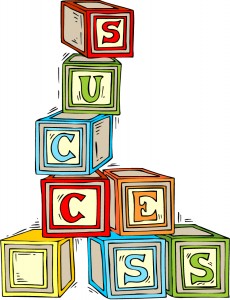Many therapists integrate cognitive-behavioral techniques into their therapy approach. However, there are 11 skills that therapists who are experts in CBT try to practice in nearly every session. The list below is from the certification criteria of the Academy of Cognitive Therapy. In order to get certified, therapists must submit an audio tape of a complete session demonstrating competence in all 11 skills. I went a step beyond this and completed the Beck Institute’s full year extramural program where I submitted 46 audiotapes over the year and rated and reviewed each tape with my Beck Institute supervisor. What an amazing experience!
Expert CBT Therapist Skills
1. AGENDA
Your therapist works with you to set an appropriate agenda with target problems, suitable for the available time. Your therapist establishes priorities and follows the agenda. If time is running out, your therapist checks in with you to make sure you want to continue with the current agenda item or move on to the next one.
2. FEEDBACK
Your therapist is adept at eliciting and responding to verbal and non-verbal feedback throughout the session (e.g., elicited reactions to session, regularly checked for understanding, helped summarize main points at end of session).
3. UNDERSTANDING
Your therapist attempts to understand your “internal reality” and is skilled at communicating this understanding to you. Your therapist has excellent listening and empathic skills.
4. INTERPERSONAL EFFECTIVENESS
Your therapist displays optimal levels of warmth, concern, confidence, genuineness, and professionalism.
5. COLLABORATION
Collaboration is excellent. Your therapist encourages you as much as possible to take an active role during the session so you and your therapist can function as a “team.”
6. PACING AND EFFICIENT USE OF TIME
Your therapist used time efficiently by tactfully limiting peripheral and unproductive discussion and by pacing the sessions as rapidly as is appropriate for you.
7. GUIDED DISCOVERY
Your therapist is skillful at using guided discovery during the session to explore problems and help you draw your own conclusions. Your therapist achieves an excellent balance between skillful questioning and other modes of inquiry.
8. FOCUSING ON KEY COGNITIONS OR BEHAVIORS
Your therapist very skillfully focuses on key thoughts, assumptions, behaviors, etc. that are most relevant to the problem area and offers considerable promise for progress.
9. STRATEGY FOR CHANGE
Your therapist follows a consistent strategy for change that seems very promising and incorporates the most appropriate cognitive-behavioral techniques.
10. APPLICATION OF COGNITIVE-BEHAVIORAL TECHNIQUES
Your therapist very skillfully and resourcefully employs cognitive-behavioral techniques.
11. HOMEWORK
Your therapist reviews previous homework and carefully assigns homework for the coming week. Homework assignments are “custom tailored” to help you incorporate new perspectives, test hypotheses, experiment with new behaviors discussed during session, etc.
How To Find an Expert CBT Therapist
The Academy of Cognitive Therapy has an online list of therapists who are certified. You still need to screen the therapists to make sure they are still following the evidence-based CBT model and incorporating the CBT therapist skills. Many therapists get certified and then drift away from the structure and principles of CBT.
Here at the Cognitive Behavior Therapy Center of Silicon Valley, we practice what we preach. If you are interested in getting help for anxiety or OCD with evidence-based CBT, contact us at (408) 384-8404 or send us an email.

